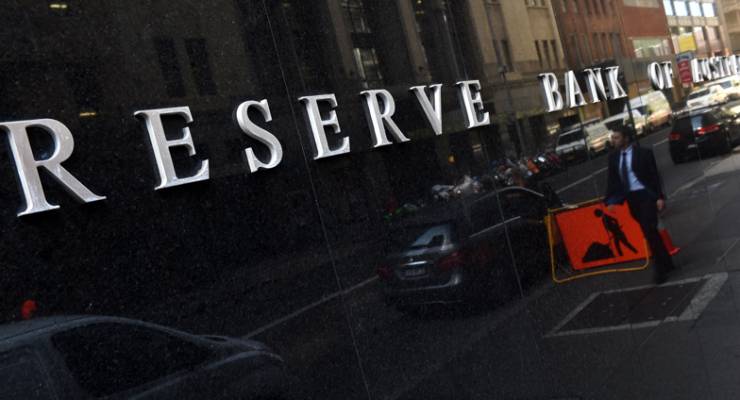
The Reserve Bank has, as bluntly as a central bank can, rebuked the campaign from neoliberal economists and the Financial Review for a punitive lift in interest rates. In the minutes of its July board meeting released yesterday, the bank declared “it would be appropriate to hold the cash rate steady and for the Bank to be a source of stability and confidence while this progress unfolds”.
If the bank wants to be a source of stability in holding rates steady, it’s pretty obvious how it regards those calling for a lift in interest rates — not for any reasons based on evidence, just because they don’t like the current rate. Not that the bank has departed from its view that the next move in rates, whenever it comes, will be up.
Members continued to view the strengthening economy as likely to deliver further progress in reducing the unemployment rate and returning inflation to target. In these circumstances, members continued to agree that the next move in the cash rate would more likely be an increase than a decrease.
But given the “gradual” nature of that progress, “there was no strong case for a near-term adjustment in monetary policy”.
If the board had no time for the silly claims of the likes of Warwick McKibbin, Warren Hogan and the editorial writers at the Fin, it does have concerns about the level of household debt in Australia. A paper on that was especially prepared for the meeting.
… households with high debt levels are more vulnerable to economic shocks and therefore more likely to reduce consumption in the face of uncertainty about their future income. Members also noted that changes in interest rates have a larger effect on disposable income for households with high debt levels, but that these households may be less inclined to borrow more at times when interest rates fall. Accordingly, members agreed that household balance sheets continued to warrant close and careful monitoring.
The softening of house prices in Sydney and Melbourne will help on that front, but the ongoing severe wage stagnation that the government remains in denial about will not. With Americans now facing real wage cuts for the first time in years (strangely unmentioned by the Financial Review, which earlier this year claimed the Trump company tax cuts were increasing wages), the RBA will be hoping the return to the inflation target (2-3%) is accompanied by a lift in wage growth from the parlous 1.9% currently “enjoyed” by private sector workers.
As for the monetary policy hawks — or is that galahs — in the commentariat, maybe they should wonder why the central bank thinks they represent a threat to the economy…









Will no-one think of the cash rich who desperately need higher interest rates to fund the new yacht?
With crowdfunding for worthy causes taking off as it is, surely they can crowdfund a yacht?
” households with high debt levels are more vulnerable to economic shocks and therefore more likely to reduce consumption..”
Hurrah. Could have and should have been written, and been a major part of public policy initiatives, 18 years ago when Australia’s growth was predicated on increased credit card debt. Yep, all those years of wonderful growth in the Howard years were largely on the back of a credit card. Great to see the RBA has twigged to the problems inherent in high debt levels. Well done, Sirs!
A bit rich coming from economic correspondents who still deny the existence of a housing bubble and, until the royal commission, were insisting that Australian bank lending had been prudent and responsible.
The cost of borrowing money IS a moral issue (ie: moral hazard) – the flood of easy money is what pushes up the cost of housing (the main cost of living). This amplifies inequality and primarily disadvantages those on low incomes who are pushed ever further to the fringes as previously “affordable” areas become unaffordable thanks to “investors”.
It also disadvantages disciplined and responsible borrowers who cannot compete as the game is rigged in favour of the irresponsible and profligate (and the responsible will INEVITABLY be called on to bail out the profligate).
Saying that this is a good thing and should be maintained because some peoples’ jobs rely on it is like saying the banking royal commission is a bad thing because it will negatively impact on the incomes of financial advisers…
The Fin Review really is a shit excuse for a newspaper, nothing but pro-big business tub thumping, anti-Union scare stories and Neo-Liberal propaganda. It’s journalists are not real journalists, just shills who have created an echo chamber for the Business Lobby. Joe Aston being a prime example of the third rate hacks they employ these days.
I would suggest that we lumpen PAYE workers are actually paying for the vast majority of AFR sales through tax deductability, exactly as with business & First class air travel – what are the chances any individual pays for such luxurious seats out of their own kick?